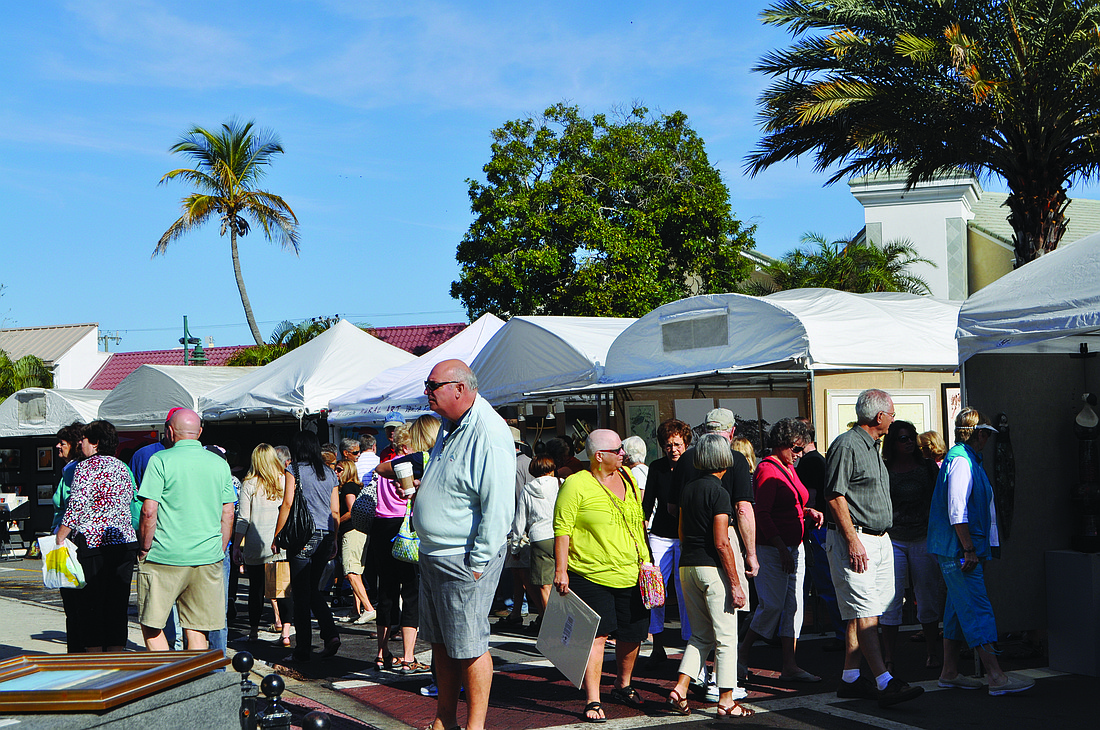- December 23, 2024
-
-
Loading

Loading

I spoke on behalf of the St. Armands Residents Association at the March 17 Sarasota City Commission meeting in support of Mayor Shannon Snyder’s proposal to extend the moratorium on special events at St. Armands Circle from Easter Sunday until the end of April.
Our position was straightforward. We opposed a high intensity event like the Paragon Art Festival at the Circle during peak tourist season, owing to a genuine concern that it would imperil the health, welfare and safety of the public.
This event would bring to a virtual standstill vehicular traffic on the only corridor providing access to our barrier islands, impeding the ability of police, fire or medical personnel to respond to an emergency.
It is bedrock law that the primary duty of a municipal corporation is the protection of the health, safety and morals of its population. Holley v. Adams, 238 So.2d 401 (Fla. 1970): “The regulation of traffic on the streets, the elimination of congestion and hazards to life and property, the safety and convenience of the travelling public constitute a vital part of the police power of municipalities.” Gate City Garage Inc., et al. v. City of Jacksonville 66 So.2d 653, 657. (Fla. 1953)
At its Dec. 2 meeting, the City Commission sought to address this issue by adopting a resolution imposing a blackout on special events at St. Armands Circle during “peak tourist season.” Drafted by City Attorney Robert Fournier, the resolution defined peak tourist season as Feb. 1 through April 15 or Easter, whichever is later. Because Easter falls on April 20, the Paragon event on April 26 would lie outside peak tourist season — but only if Mr. Fournier’s definition of “peak tourist season” is correct.
But it is not. The Florida Department of Transportation defines “peak season” for Sarasota County beach communities as the 13-week period ending April 28, not April 20. So if permitted to proceed, this event will occur during “peak tourist season.”
At the March 17 City Commission meeting, Mr. Fournier accused the St. Armands Residents Association of having an “ulterior motive to target Paragon” in seeking an extension of the blackout period until the end of April because Paragon was the only event scheduled that month. Our agenda, he said, is to “pick winners and losers at the Circle” and cautioned that the city would face a federal civil rights discrimination lawsuit should it accede to our request and extend the blackout.
During this tirade, the city attorney repeatedly confused our association with the LMR (Landlords, Merchants and Residents association), a group we do not and did not purport to represent.
Mr. Fournier’s allegations are groundless. We have no interest in picking winners or losers at the Circle. To suggest that our homeowners are trying to protect Paragon’s competitor borders on delusional. The only losers, should this event take place, will be the residents of the barrier islands.
To be clear, last June we asked the city manager either to reschedule it outside of “peak season” or divert it to another park. He did neither. Had the Paragon Festival simply been postponed by one week until the first weekend in May, this dispute could have been avoided.
As for Mr. Fournier’s warning about a potential federal civil rights discrimination claim against the city by Paragon if the blackout is extended, we beg to differ. Begin with the fact that no art festival has ever been allowed at St. Armands Circle during peak season from Feb. 1 to April 30. So if this event occurs during peak season, the only recipient of preferential treatment will be Paragon, not its competitor.
Ironically, only by granting an expansion of the blackout can the city shield itself from a claim of discrimination, not by Paragon, but its competitor, because both Paragon and its competitor will then stand on an equal footing, with neither having an event during “peak season.”
Conversely, should the city fail to act, Paragon’s competitor will become the victim of discrimination, because only Paragon will have been granted exclusive privileges to do events during “peak season.”
Our acceptance of this event off season should not be misconstrued as an endorsement by the association of large-scale events at St. Armands Circle. To the contrary, our association president, Hugh Fiore, has made clear the association intends to revisit the high-traffic events at the Circle, both on and off season, within the context of the forthcoming Special Events Ordinance and the just-released draft of the St. Armands Parking Feasibility Study.
A final thought. Like Alice in the “Looking Glass,” we find ourselves in a paradox. On the one hand, our city attorney ominously warns that cancellation of the Paragon event, out of concern for public safety, invites a discrimination lawsuit under the federal civil rights act. On the other, in response to the mayor’s sober concern that someone might die that weekend because an ambulance is unable to leave the island, the city attorney leaves us with the comforting thought that “the city would not have any liability in [that] situation.”
It is a sad day when unsupportable threats of litigation supplant common sense and good judgment in the formulation of public policy. Obviously, something needs to change. A good start might be a new city attorney.
Edward G. Rosenblum served as special tax counsel for more than 100 municipalities and the State League of Municipalities in New Jersey. He is vice president of the St. Armands Residents Association.